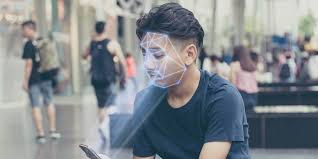
Breaking News
 China Will Close the Semiconductor Gap After EUV Lithography Breakthrough
China Will Close the Semiconductor Gap After EUV Lithography Breakthrough
 The Five Big Lies of Vaccinology
The Five Big Lies of Vaccinology
 Large global study analyzing data from 192 countries has sparked intense debate by suggesting...
Large global study analyzing data from 192 countries has sparked intense debate by suggesting...
Top Tech News
 EngineAI T800: Born to Disrupt! #EngineAI #robotics #newtechnology #newproduct
EngineAI T800: Born to Disrupt! #EngineAI #robotics #newtechnology #newproduct
 This Silicon Anode Breakthrough Could Mark A Turning Point For EV Batteries [Update]
This Silicon Anode Breakthrough Could Mark A Turning Point For EV Batteries [Update]
 Travel gadget promises to dry and iron your clothes – totally hands-free
Travel gadget promises to dry and iron your clothes – totally hands-free
 Perfect Aircrete, Kitchen Ingredients.
Perfect Aircrete, Kitchen Ingredients.
 Futuristic pixel-raising display lets you feel what's onscreen
Futuristic pixel-raising display lets you feel what's onscreen
 Cutting-Edge Facility Generates Pure Water and Hydrogen Fuel from Seawater for Mere Pennies
Cutting-Edge Facility Generates Pure Water and Hydrogen Fuel from Seawater for Mere Pennies
 This tiny dev board is packed with features for ambitious makers
This tiny dev board is packed with features for ambitious makers
 Scientists Discover Gel to Regrow Tooth Enamel
Scientists Discover Gel to Regrow Tooth Enamel
 Vitamin C and Dandelion Root Killing Cancer Cells -- as Former CDC Director Calls for COVID-19...
Vitamin C and Dandelion Root Killing Cancer Cells -- as Former CDC Director Calls for COVID-19...
 Galactic Brain: US firm plans space-based data centers, power grid to challenge China
Galactic Brain: US firm plans space-based data centers, power grid to challenge China
UCLA cancels on-campus facial recognition amid backlash over privacy...

UCLA cancelled a plan to use facial recognition technology on campus after students protested over privacy concerns, including one critique that likened use of the digital surveillance to George Orwell's book, '1984.'
The school issued a statement on Wednesday, saying that its plan for using facial recognition was scrapped due to the privacy concerns that were expressed.
'UCLA will not pursue the use of this technology,' wrote UCLA administrative vice chancellor Michael Beck in a statement released on Wednesday.
'We have determined that the potential benefits are limited and vastly outweighed by the concerns of our campus community,' he explained in the statement, obtained by MailOnline.com.'We have determined that the potential benefits are limited and vastly outweighed by the concerns of our campus community,' he explained in the statement, obtained by MailOnline.com.
The Los-Angeles-based public university wanted to use facial recognition to raise an alarm if someone who was banned from campus suddenly showed up at the school.
UCLA also had wanted to use the technology to recognize and authorize individuals seeking access into restricted areas.

 This is why RAM costs so much
This is why RAM costs so much

